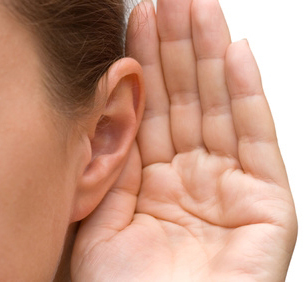 Note: The author is Business Director and Gamemaster at Voice Over Virtual - the giant 3-day totally online voice over conference in September. Note: The author is Business Director and Gamemaster at Voice Over Virtual - the giant 3-day totally online voice over conference in September.A voice actor walks into a booth. The sound engineer hears unidentified buzzing. After checking all of his connections and levels, he says: ”Hold on. I’m getting a strange noise.” "Whoops!” the talent replies. "That’s me. Sorry! I’ll turn off my vibrator now.” Yes, this conversation really happened. And no, this is not an R-rated article. FOR TENSE THROATS Researchers at the University of Alberta have discovered an effective (if unconventional) method for helping actors, singers and speakers increase their range and projection. It’s great news for those of us who need occasional help keeping our voices powerful and resilient. When speech problems arise, speech pathologists often advise sufferers to massage their necks to loosen up the tight muscles that restrict a full range of sound. Unfortunately, many of us who speak and sing for a living simply cannot tolerate the feeling of fingers on our throats. University of Alberta’s drama professor David Ley sought a novel solution to this problem when a friend came to him for help with her laryngitis. It was clear to Ley that his friend’s problem would be alleviated by loosening up the muscles in her throat. And he reasoned that physical therapists in other fields use mechanical aids to help their clients recover from injuries. Why not apply the same logic to vocal problems? VISITS 'LOVE SHOP' ... That prompted a trip to his local "love shop” (his term, not mine), where he found a powerful, hand-held device that vibrated in a frequency range of 100 to 120 hertz (close to the human vocal range). When held against the neck, near the larynx, the device dramatically reduced tension and opened up the throat. Ley explains: "The first response is always ‘Wow! It’s never felt that easy for me to make sound! And singers then begin to find that they have more range, they have more fullness in their voices.” GETS CHEEKY ... David Ley notes that applying a vibrator to the top of the head and cheeks also enhances certain overtones. As a technique for relieving vocal stress however, vibrator massage has not been fully studied or accepted by vocal health professionals. You may be surprised to learn how many of your colleagues in the voice community are already benefiting from this knowledge. But because of its racy origins, many people hesitate to discuss the very real benefits of using a small personal massager for vocal warm-ups. Some day, this tool may be more widely accepted. For now, just ignore that buzz coming from the booth. For a short, informative video on this topic narrated by Professor David Ley of the University of Alberta, check out this link. -----------------------------------------------------  ABOUT ELIZABETH ABOUT ELIZABETHElizabeth Holmes is a writer, voice actor, and staff editor at VoiceOverXtra, based in Northern California. She is also editor of VoiceOverXtra's book division, including Voice Over Legal, by voice actor / attorney Robert Sciglimpaglia. Email: elizabeth@HolmesVoice.com Earlier Sounds Odd Columns: http://bit.ly/SoundsOddColumns |
|
As of the NEW website launch, 03/22/2012

 SOUNDS ODD
SOUNDS ODD








Tones of any frequency can be generated by many recording packages, or you could even sing a tone into a track and play that.
Disclaimer: I have not tried any of this yet, but will. And I guess you should be cautious about the power level.
Thanks for sharing.